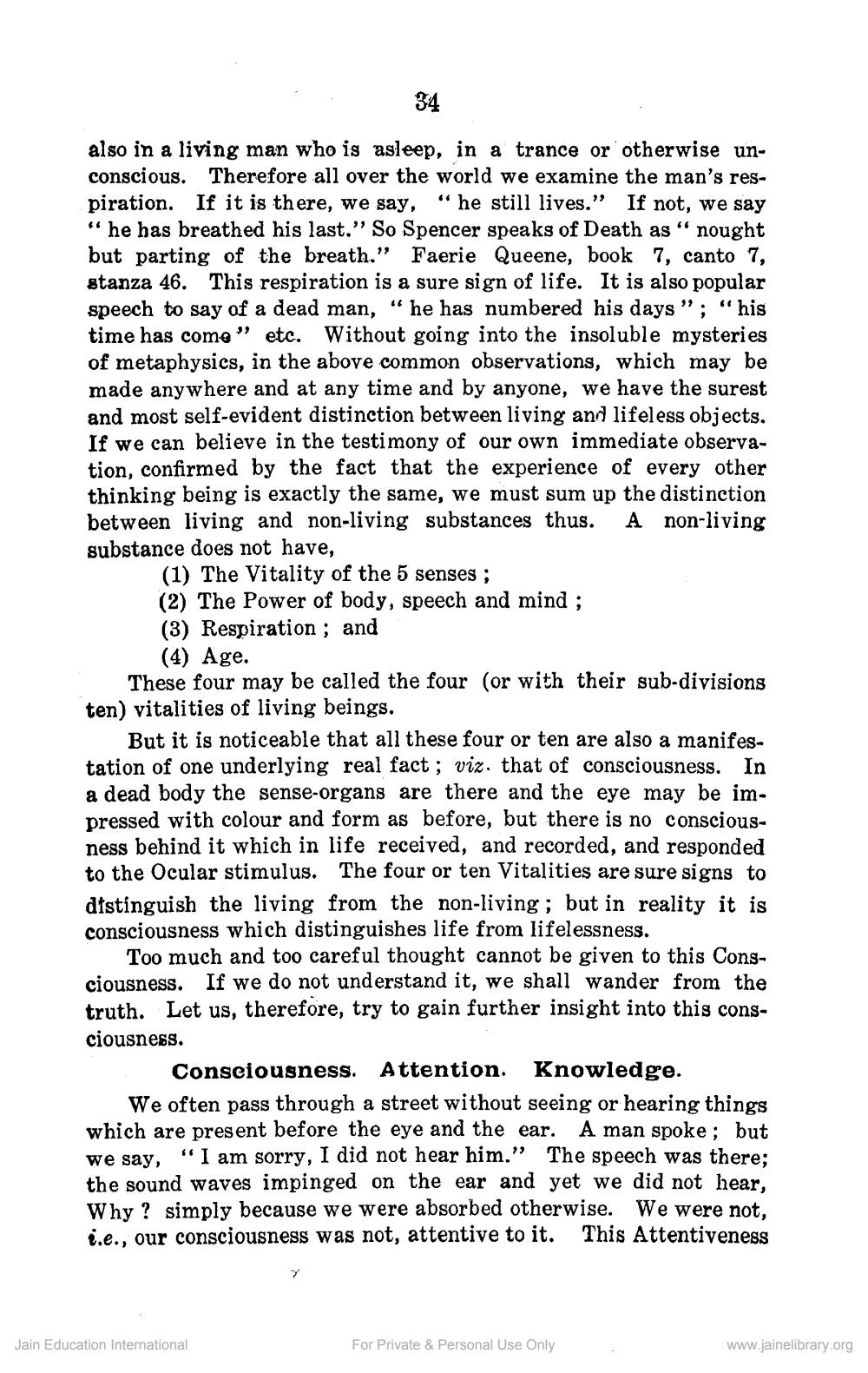________________
34
also in a living man who is asleep, in a trance or otherwise unconscious. Therefore all over the world we examine the man's respiration. If it is there, we say, “he still lives." If not, we say "he has breathed his last.” So Spencer speaks of Death as "nought but parting of the breath." Faerie Queene, book 7, canto 7, stanza 46. This respiration is a sure sign of life. It is also popular speech to say of a dead man," he has numbered his days"; "his time has come" etc. Without going into the insoluble mysteries of metaphysics, in the above common observations, which may be made anywhere and at any time and by anyone, we have the surest and most self-evident distinction between living and lifeless objects. If we can believe in the testimony of our own immediate observation, confirmed by the fact that the experience of every other thinking being is exactly the same, we must sum up the distinction between living and non-living substances thus. A non-living substance does not have,
(1) The Vitality of the 5 senses ; (2) The Power of body, speech and mind ; (3) Respiration; and
(4) Age.
These four may be called the four (or with their sub-divisions ten) vitalities of living beings.
But it is noticeable that all these four or ten are also a manifestation of one underlying real fact; viz. that of consciousness. In a dead body the sense-organs are there and the eye may be impressed with colour and form as before, but there is no consciousness behind it which in life received, and recorded, and responded to the Ocular stimulus. The four or ten Vitalities are sure signs to dtstinguish the living from the non-living ; but in reality it is consciousness which distinguishes life from lifelessness.
Too much and too careful thought cannot be given to this Consciousness. If we do not understand it, we shall wander from the truth. Let us, therefore, try to gain further insight into this consciousness.
Consciousness. Attention. Knowledge. We often pass through a street without seeing or hearing things which are present before the eye and the ear. A man spoke; but we say, "I am sorry, I did not hear him.” The speech was there: the sound waves impinged on the ear and yet we did not hear. Why ? simply because we were absorbed otherwise. We were not. ie.. our consciousness was not, attentive to it. This Attentiveness
Jain Education International
For Private & Personal Use Only
www.jainelibrary.org




